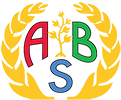Early intervention is more likely to be effective than later intervention. Early diagnosis and treatment of autism have been shown to have a significant impact on child’s development, leading to improved outcomes for children with autism, including increased social, communication and daily living skills or can improve a child’s overall development.
Our ability to provide parents with effective therapies for children in this age range is critical, given that the American Academy of Pediatrics recommends that all children 18 and 24 months of age be tested for autism “Geraldine Dawson, Ph.D., Autism Speaks’ chief science officer and the study’s lead author, agreed. With early intervention, we hope to achieve maximum benefit.
Some children with autism spectrum disorder (ASD) are diagnosed before the age of two. During this stage of development, the brain is forming and making connections, resulting in a higher level of brain plasticity. The increased level of brain plasticity means that the brain is incredibly adaptable during this time, allowing treatment to be implemented more readily.
Intervention at an early age not only gives children the best possible start, but also gives the best chance of reaching their full potential. Children who receive treatment sooner have a greater chance of learning and progressing. According to recent guidelines of the National Institute of Child Health and Development, an integrated developmental and behavioural intervention should begin the moment ASD is diagnosed or suspected to be a problem.
A final benefit of catching autism early is the improvement in parent-child relationships. With early preparation and intervention, parents of autistic children can prepare themselves mentally and emotionally for the task ahead, creating a more cohesive relationship.
Early intervention helps the children to develop the basic skills they learn in the first years of their life, which includes the strengthening of their physical abilities, skills in critical thinking, having good communication abilities, the ability to interact with others and lastly, emotional intelligence skills. Early interventions give children a best chance to find appropriate therapy as well as a better chance for a great future.




